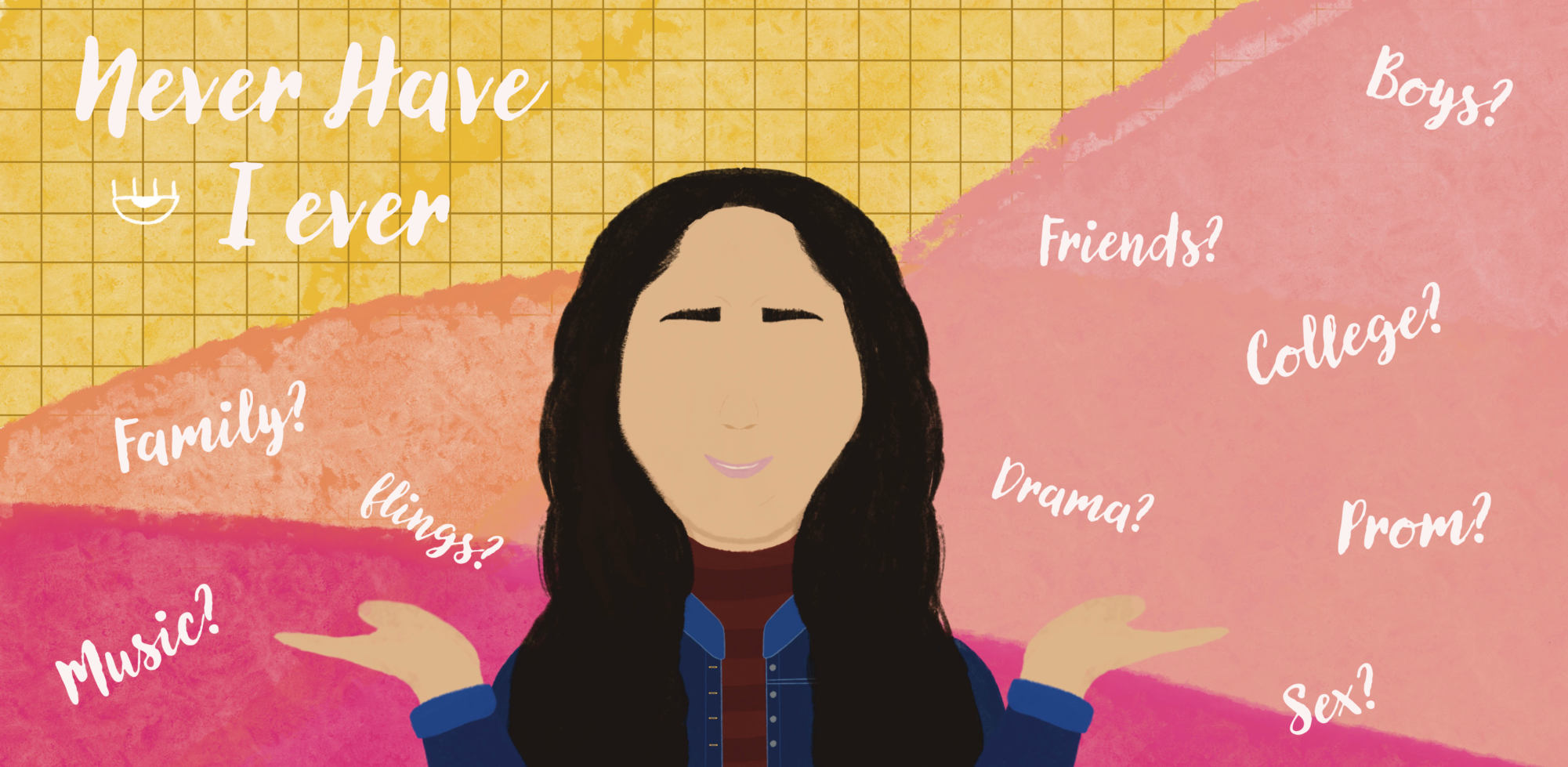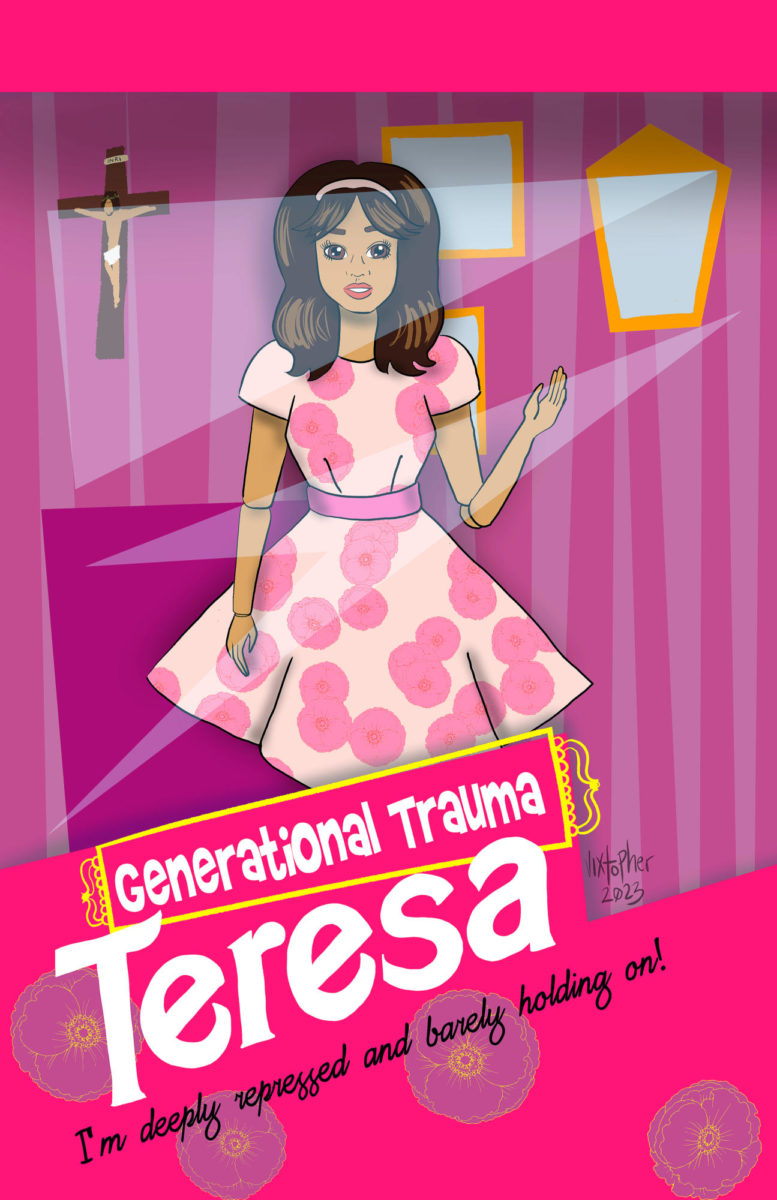“Never Have I Ever” is a Netflix-exclusive series about a first-generation adolescent Indian girl, named Devi Vishwakumar, played by actress Maitreyi Ramakrishnan, in her first high-profile role. Devi is on her high school journey, and her dream is to attend Princeton University. The series recently ended last summer, with 40 episodes currently existing and across four seasons. Thus, it would be optimal to binge-watch every episode over a single weekend.
Despite the fact that the entire series revolves around an adolescent girl and her teenage drama, it is definitely not a TV show that only teenage girls would be interested in. The series appealed to me for several reasons, but the first reason was that the primary protagonist of the series is from a typically underrepresented culture in the American film and television industry. As an individual with an Indian heritage background and being born as a first-generation American myself, the Netflix series piqued my interest to watch episode after episode in sequence. It aligned with my childhood and adolescent years, which included making biannual trips to at least one of Chicagoland Area’s Hindu Temples for both Ugadi in the springtime and Diwali in the fall.
Devi Vishwakumar is a character that has numerous complexities, and her nuances can be blamed on the fact that her father died from a heart attack during one of her orchestral recitals while playing the harp. The scene of her father’s death replays in her mind and onscreen each season, as she grapples with her post-traumatic stress disorder stemming from his passing. This profound impact of a father’s sudden passing would be devastating for anyone, but it is especially significant for a minor who shares a deep emotional bond with their dad. Each season takes place during various time intervals of Devi’s high school lifestyle. As such, season one and season two revolved around most of her sophomore year. Season three showed the rest of her sophomore year and the entirety of her junior year, and the season finale revolved around her senior year. The complexities of adolescent life, the onset of puberty, the beginning of relationships, dating, and a sex life and the pressures of choosing the right college for oneself are several of the challenges facing the young Indian-American girl throughout the series.
Early on, the portrayal of Vishwakumar’s personality may come off as egotistical, narcissistic, immensely horny and being a self-hating Indian, but over the seasons, she evolves into a mature young woman. However, one can empathize deeply for Vishwakumar because she has dealt with adversities that no adolescent should ever face, such as the death of her father at such a young age.
Her best friends, Eleanor and Fabiola, played by Ramona Young and Lee Rodriguez respectively, understand the sentiment to offer support when she needs it. The friends definitely have their arguments and silent treatments with one another, but they ultimately get past it. Vishwakumar’s family members, Dr. Nalini Vishwakumar, Kamala Nandiwadal and later on in the show Nirmala Vishwakumar, played by Poorna Jagannathan, Richa Moorjani and Ranjita Chakravarty, respectively, may be stern and overbearing at times towards Devi, but there comes several moments when they all change their attitudes and become more empathetic towards her wishes. What goes around comes around. Thus, they come to realizations that Devi may be right about certain life choices.
The series will definitely appeal to members of other underrepresented cultures, but it will also appeal for greater society as well because it builds on the overly censored television industry. As a child, I grew up watching mostly Disney Channel and Nickelodeon television shows, such as “Suite Life of Zack and Cody,” “Phil of the Future,” “Even Stevens,” “Drake & Josh” and “iCarly”. As an adult, “Never Have I Ever” felt so refreshing to expand on those primordial shows while removing all aspects of censored language. With that said, the language used in the recently concluded Netflix series is strong, and sensitive audiences may not appreciate the masterpiece.
All episodes of the series feature a narration from former tennis player John McEnroe. Vishwakumar’s father, when he was alive, enjoyed his body of work as a tennis player, therefore he is the disembodied voice that is heard in almost every episode of the show. Some episodes take a unique stance on this idea because the narrator may be different for a particular episode, due to a focus on one of the other members of Vishwakumar’s social circle. In these few episodes, there may be a guest narration episode by a famous person.
Indians may be considered to have particular stereotypes, and the show highlighted at least one of them. One stereotype of Indians stands very true for young Vishwakumar because she is an overachiever by earning a perfect GPA, doing well in all class subjects and being an active student in various student organizations. Any student who does similar activities may align with many underlying facets of the Indian-American girl.
Whether you are an Indian-American or not, this series has something for everybody. If you have not yet watched the series or only watched particular episodes or scenes, I strongly urge you to watch the entire series as a marathon. As of the publication date of this article, the series has an IMDb rating of 7.9 stars out of 10 with a total of 75,000 votes. The high rating may be enough evidence to persuade viewers to consider watching the series, but if not, I hope that this review has helped you to make a fair decision.








